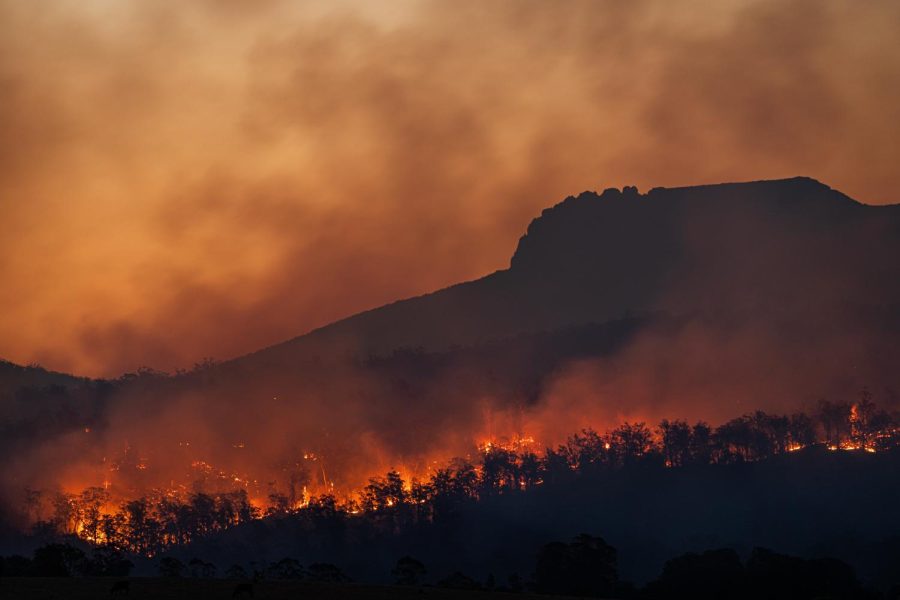UN climate report paints scathing overview of crisis
Forest fires like the one shown above could become more likely as the Earth continues to warm. Photo by Matt Palmer from Unspalsh.
March 23, 2022
The paper, released on February 28, 2022, detailed the current plight of the atmosphere and Earth’s environment in over 10,000 pages of causes, effects and solutions for the upcoming issues. It was described by UN Secretary General Antonio Guterres as an “atlas of human suffering”. The Paris Climate Agreement, signed by the majority of world powers (including the U.S and their recent rejoining), pledged to hold temperature rises to 1.5 degrees Celsius of pre-industrial levels, but that mark is not being kept, as the planet has already warmed by 1.1 degrees Celsius with no signs of slowing down.
Breaking past that 1.5 temperature increase could permanently scar the planet according to scientists. At the current rate, it is expected to push 40 million more people into extreme poverty by 2030. Those affected are primarily focused around the Equator, including less developed areas in Africa and Central America. Mitigation to help such temperature increases could include having the communities help themselves.
“Providing social welfare or jobs that also protect the environment. For example, uprooting invasive trees that deplete water supplies can go a long way towards helping vulnerable populations,” said report co-author Christopher Trisos, a climate risk researcher at the University of Cape Town.
The report itself offers up many different solutions for the issue at hand. First, we must dramatically increase our use of renewable and/or nuclear types of energy for everyday consumption. Next, we must reduce our use of fossil fuels as much as possible, as well as find ways to rid the atmosphere and waters of the world from excess carbon and other types of pollution.
International scientists still work around the clock to find ways to fix the bleak climate future for the Earth, with the recently released report being three years in the making, and it being the second installment in a series of UN-led warnings towards big corporations and other big polluters. The IPCC (The Intergovernmental Panel on Climate Change) meets from March 21 to April 1 to specifically discuss the report at hand, and to how to proceed forward. Later this year, COP 27 (UN Climate Change Conference) will take place in Egypt, an area set to be heavily affected by the rising temperatures. Maybe in these meetings our planet’s best can find the final solution for the problem of our time.









